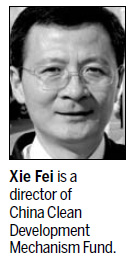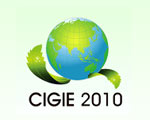China refutes proposal on carbon credits
(China Daily)
2010-12-09 09:50
|
|

CANCUN, Mexico - The European Union's proposal to ban industrial carbon credits from 2013 will hurt the interests of developing and developed countries if it comes into effect, said a Chinese official.

Xie Fei, a director of China Clean Development Mechanism (CDM) Fund, said there should be "consistency and fairness" in the EU's emission trading policy to ensure a stable carbon market.
Any policy fluctuations will hurt players on both sides, with China mostly affected, Xie, whose organization is under the Ministry of Finance, told China Daily.
"Industrial gas CDM projects contribute a lot to greenhouse gas emission reduction and are beneficial for both buyers and sellers.
"It is a pity that such projects are facing uncertainties or phasing out due to the possible discriminatory policies."
Europe has the world's largest carbon market and buys most of the carbon credit generated by CDM. CDM is a market-based mechanism under the Kyoto Protocol, allowing industrialized countries to meet their emission reduction targets at low cost by buying credits from developing countries.
Carbon credits produced by CDM projects of decomposing hydrofluorocarbon (HFC) 23 and adipic acid nitrous oxide comprise 70 percent of the global CDM market, mostly in China and India.
About 11 of the world's total 19 HFC 23 projects and two of the four adipic acid nitrous oxide projects are in China.
HFC 23 is mainly emitted by production of a refrigerant and a feedstock for making non-stick pans, while nitrous oxide is emitted by nylon production.
"CDM has helped industrialized countries meet their emission target at much lower cost. At the same time, it also has played an active role in helping developing countries' development," Xie said.
"The mechanism is widely recognized as a win-win approach both for industrialized countries and developing countries and any inconsistent CDM-related policies will seriously hurt market trust and confidence."
The EU said these kinds of emission reductions should be the responsibilities of developing countries instead of being done through the carbon market.
Xie said such a statement violates the "common but differentiated responsibilities" and is aimed at making developing countries shoulder comparable responsibilities with developed countries.
| ||||
Xie said CDM has little to do in helping these countries get sufficient money to handle climate change.
Meanwhile, there are suspicions that some industrial gas CDM companies are encouraging emissions to maximize their carbon credits.
"As far as I know, no organization or agency has done due-diligence investigations in China before reaching such kind of conclusions," Xie said.
CDM projects have brought Chinese companies advanced management skills, including scientific greenhouse emission monitoring approach, Xie said.
Martin Hession, vice-chairman of the CDM executive board under the United Nations Framework Convention on Climate Change, said CDM's success cannot be measured simply in terms of the number of projects and credits it has delivered, but also in terms of the institutional and cultural change it has driven.







